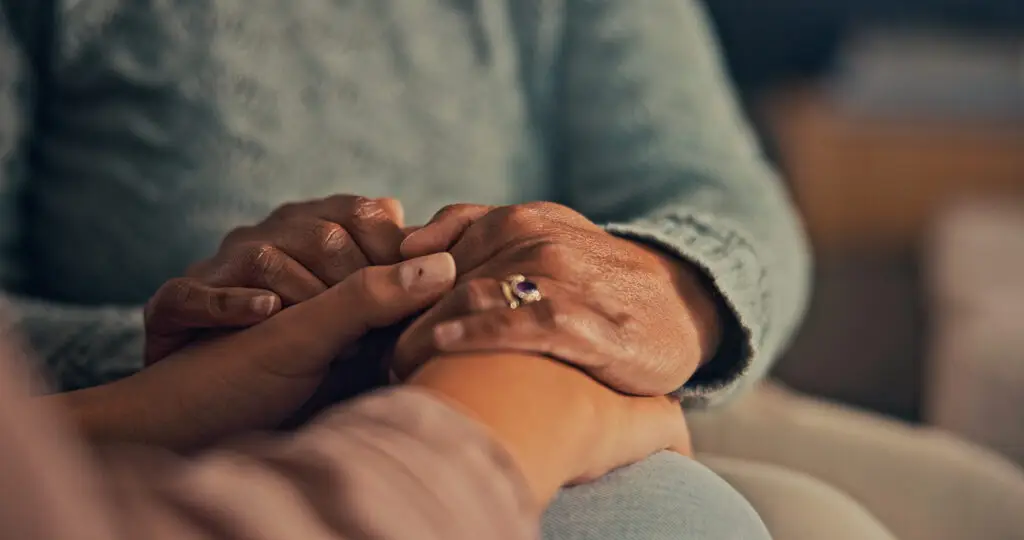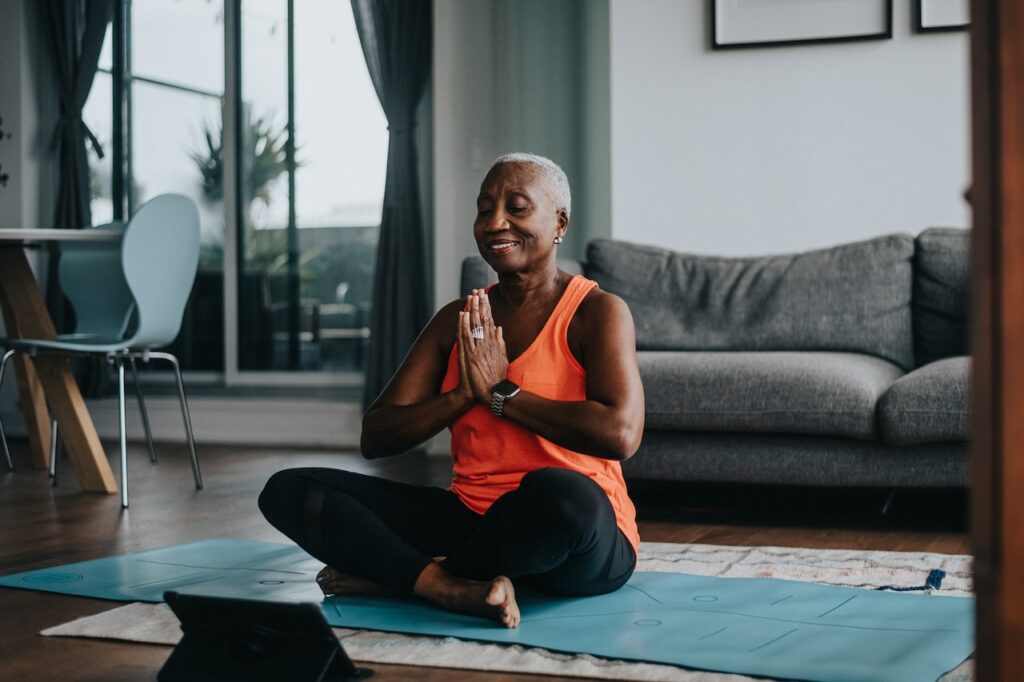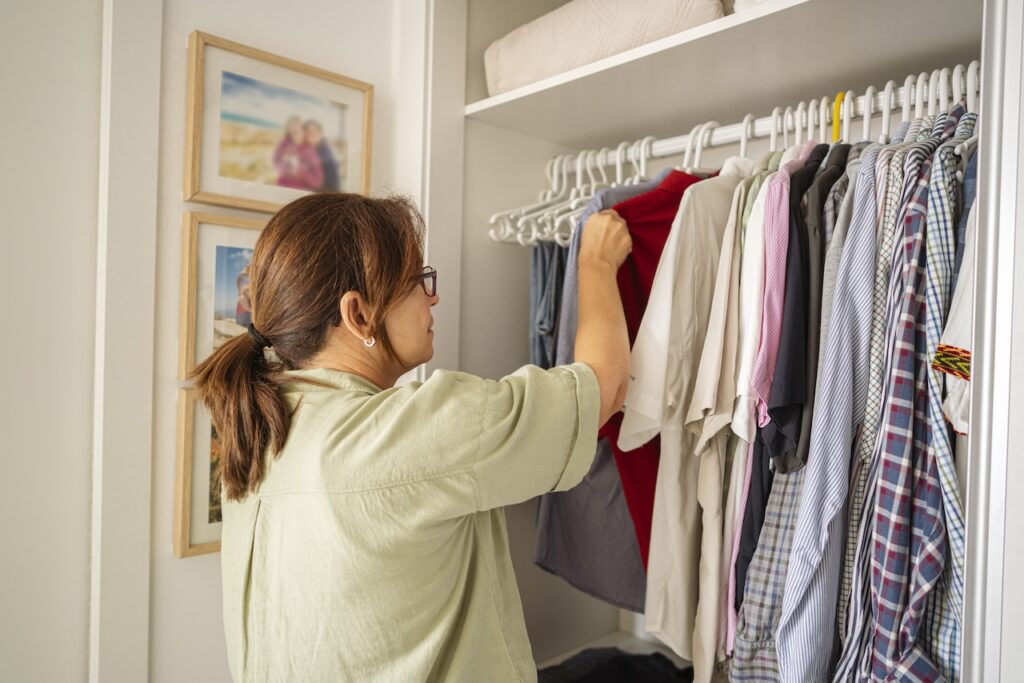In honor of National Healthcare Decisions Day, learn about how this special support system can help patients throughout their care
Held annually on April 16th, National Healthcare Decisions Day (NHDD) is an educational event to raise awareness of the importance of completing advance directives and empowering individuals to make their healthcare decisions known.
In recognition of NHHD, we’re honored to connect with trained end-of-life doula Lisa Petgrave-Nelson to share insights on how to navigate these difficult conversations. Lisa is a Licensed Master Social Worker, Certified Oncology Social Worker, an NYU Zelda Foster Palliative Care and Leadership Fellow, and she is currently a Doctoral student in Social Work (DSW) at Wurzweiler University.
And while talking about or thinking about death is never “fun,” particularly when facing a serious illness such as cancer, it’s important for all people (not just patients) to be aware of all of our considerations, options, and resources related to our mortality.
Lisa has over two decades of experience working directly with terminally ill patients and is dedicated to advocating for patients, providing compassionate end-of-life care, and promoting healthcare equity. She’s also contributed her expertise to multiple organizations including the Association of Oncology Social Work, SHARE Cancer Support, The Journal of End-of-Life & Palliative Care, Stupid Cancer, and Living Beyond Breast Cancer (LBBC).
Keep reading for Lisa’s responses to FAQs on how end-of-life doulas can provide support for cancer patients and their loved ones.
1) What is an end-of-life doula? What inspired you to become a trained end-of-life doula?
Evidence-based guidance powered by NCCN Guidelines®
Personalized treatment plans shaped by the latest oncology standards—tailored to your diagnosis.
Get started
View your personalized treatment plan in the Outcomes4Me app
Use your diagnosis to unlock personalized NCCN Guidelines®-aligned recommendations.
Continue in app
An end-of-life doula is a non-medical professional who provides emotional, spiritual, and practical support to individuals and their families during the dying process. We help facilitate discussions about end-of-life wishes, assist with legacy projects, facilitate conversations about death, create a peaceful environment, and support and comfort the patient and their loved ones through grief.
My journey to becoming a trained end-of-life doula was inspired by my experiences as an oncology social worker and the profound moment of being present for my grandmother’s passing. In my work, I have seen the gaps in end-of-life care, especially for patients of color and those hesitant to engage in these vital conversations. I felt compelled to provide compassionate, culturally sensitive support that respects each individual’s values, dignity, and legacy during this deeply significant time.
2) How does an end-of-life doula differ from the care you might receive in hospice or while in a palliative care setting?
An end-of-life doula differs from hospice and palliative care by providing non-medical, holistic support that focuses on emotional, spiritual, and practical needs. While hospice and palliative teams manage medical care and symptom relief, doulas offer companionship, legacy work, guided discussions about death, and personalized comfort measures that respect cultural and personal preferences.
Their presence allows for more dedicated emotional support, complementing clinical care by addressing gaps in psychosocial and emotional well-being. This ensures that individuals and their families feel heard, prepared, and supported throughout the dying process.
3) What kind of training or certifications do end-of-life doulas have?
I trained with the International End-of-Life Doula Association (INELDA) and am also a member of The National End-of-Life Doula Alliance “NEDA.” While several programs offer end-of-life doula training with varying requirements, they all aim to prepare participants to support individuals and their loved ones emotionally, spiritually, and practically.
INELDA’s curriculum covers foundational skills, life review, legacy work, vigil planning, grief support, and ethical business practices. The program includes interactive workshops, case studies, and mentorship. After completing the training, individuals can take additional exams to become certified as an end-of-life doula.
4) How can an end-of-life doula support someone with advanced or terminal cancer?
An end-of-life doula offers essential support to individuals with advanced or terminal illness by tending to their emotional, spiritual, and practical needs. While our role is non-medical, it is rooted in deep compassion, guiding both the person and their loved ones through the dying process with dignity and peace. We provide reassurance and companionship, helping those facing terminal disease to feel supported and empowered to approach the end of life with grace and comfort.
5) Can an end-of-life doula help with advance care planning?
Yes, an end-of-life doula can assist with advance care planning by guiding individuals and their families through important decisions about their end-of-life wishes. While we do not provide legal or medical advice, we help facilitate discussions, ensure wishes are clearly documented, and offer emotional support throughout the process.
6) What other resources do you recommend for patients and their family members?
There are many resources available to help patients with advanced illness and their families navigate the end-of-life journey.
- The Conversation Project: Guides for discussing end-of-life wishes
- Five Wishes: A user-friendly advance directive document
- What’s Your Grief: Practical grief support and education
- Open to Hope: Grief resources, podcasts, and articles
- StoryCorps Legacy: Helps record life stories
- Everplans: Digital storage for important documents and wishes
- International End-of-Life Doula Association (INELDA) and National End-of-Life Doula Alliance (NEDA): Doula training, resources, and support
- Going With Grace: End of life guides and workbooks
7) What advice do you have for terminally ill cancer patients and their loved ones?
My advice for terminally ill patients is to honor your emotions, prioritize comfort, and embrace what brings you peace and joy. This is your journey. Express your wishes, spend time with loved ones, and, if meaningful, create a legacy through letters or recordings.
For loved ones, simply being present is the greatest gift. You don’t need the perfect words. It means so much to your loved ones to hold space for them by simply listening, holding a hand, and sharing memories. These acts can bring deep comfort. It’s also important to not forget to care for yourself, too. This time can be profoundly meaningful. My role is to ensure no one walks this path alone, offering guidance, reassurance, and a compassionate presence.
Connect with an Outcomes4Me oncology nurse practitioner at no charge through the Outcomes4Me app, using the “Ask Outcomes4Me” button.
Personalized support for real care decisions
Understand your diagnosis, explore clinical trials, and track symptoms--all in one place.
Get started
Compare treatments, prepare for appointments, and track side effects—all in the app
Built for your diagnosis, Outcomes4Me gives you the tools to make confident, informed decisions—right when you need them.
Continue in app






